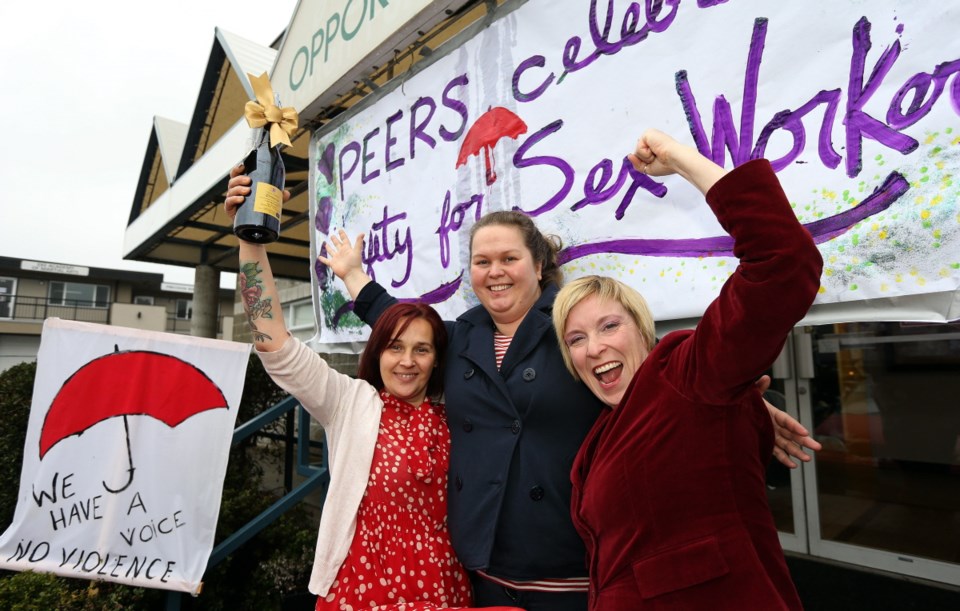Sex workers and their advocates across the country are celebrating a landmark Supreme Court decision Friday that struck down Canada’s prostitution laws as unconstitutional.
“The voices of sex workers were finally heard,” said Natasha Potvin, a former sex worker who volunteers with PEERS, a Victoria non-profit organization that offers support services to sex workers.
“Everyone deserves the basic human rights.”
In a unanimous decision, the high court ruled that all three prostitution-related prohibitions — against keeping a brothel, living on the avails of prostitution and street soliciting — are violations of the constitutional guarantee to life, liberty and security of the person.
Parliament was given a year to produce new legislation. That means prostitution-related offences will remain in the Criminal Code for one more year.
Justice Minister Peter MacKay said: “We are reviewing the decision and are exploring all possible options to ensure the criminal law continues to address the significant harms that flow from prostitution to communities, those engaged in prostitution and vulnerable persons.”
Cecilia Benoit, a professor at the University of Victoria who provided expertise in the court challenge, is working on a national study about the health and safety of sex workers.
The court, she said, made “the right decision, but what happens will depend on what Parliament decides to do with it.”
Benoit hopes to see policies that include diverse voices in sex work and involve governments at the provincial and municipal levels.
Marion Little, executive director of PEERS, wants Canada to take its cue from New Zealand and decriminalize prostitution, rather than from Sweden, which targets the men who pay for sex.
“That just drives the industry underground, which puts us back to square one,” Little said. Keeping sex work above ground will encourage better reporting of crimes and more safety for the most vulnerable, she said.
Some women’s advocacy groups had mixed feelings about the court’s ruling, saying it fails to address the sexual exploitation of women.
“It’s a sad day that we’ve now confirmed that it’s OK to buy and sell women and girls in this country,” said Kim Pate, executive director of the Canadian Association of Elizabeth Fry Societies, in a statement on behalf of the group which assists women with judicial matters.
“I think generations to come, our daughters and granddaughters, will look back and say, ‘What were they thinking?’ ”
But Lisa Ordell, 48, who went into sex work after losing her job as a massage therapist at a Victoria hotel in 2000, thinks her work should be seen as a form of therapy.
“My ultimate goal would be to have sex work fall under health work and medical care, legitimize it to that degree,” said Ordell, who is completing a master’s degree at the University of Victoria in educational psychology and leadership.
She said it would be complicated to regulate but a code of conduct, with moral and physical boundaries similar to massage therapy, might work.
Potvin, 40, became a sex worker in Montreal in her early 20s and worked while raising children and becoming an advocate.
“The public needs to see the difference between sex work as a job and the bad things that get associated with it,” she said. She hopes future legislation protects sex workers such as her best friend, who was killed in Montreal in 2009.
“Some men in a club recognized her as a sex worker,” she said.
“They drugged and raped her. She died, but because of her being a sex worker it was treated as an overdose. … That is not right.”



